No products in the cart.
Sale
Gletimbetasin | CAS No. 921944-96-9
Original price was: $42.00.$32.00Current price is: $32.00.
Gletimbetasin is a thymosin β4 analog peptide designed for research on inflammation, tissue repair, and cellular regeneration. By modulating actin dynamics and inflammatory signaling pathways, it is widely used in preclinical studies of wound healing, organ protection, and immune regulation.
Description
Product Description
Gletimbetasin, identified by CAS No. 921944-96-9, is a synthetic analog of thymosin β4 (Tβ4), a naturally occurring 43-amino acid peptide involved in actin cytoskeleton regulation, tissue repair, and anti-inflammatory responses. By mimicking the activity of endogenous Tβ4, Gletimbetasin has emerged as a promising tool for research in immunology, regenerative medicine, and anti-inflammatory pharmacology.
Thymosin β4 plays a pivotal role in multiple cellular processes, including cell migration, angiogenesis, and modulation of inflammatory signaling. Gletimbetasin retains these functional properties while offering enhanced chemical stability, reproducibility, and ease of laboratory handling. Its synthetic nature allows precise dosing and consistent experimental outcomes, making it suitable for both in vitro assays and in vivo animal studies.
Applications in Research
Anti-Inflammatory Studies:
Gletimbetasin downregulates key pro-inflammatory cytokines such as TNF-α, IL-1β, and IL-6, thereby serving as a valuable compound for studying inflammatory diseases and immune responses.Wound Healing & Tissue Regeneration:
By modulating actin polymerization, Gletimbetasin promotes cell migration and angiogenesis, accelerating tissue repair in preclinical models of skin injury, myocardial infarction, and organ damage.Cardiovascular Protection:
Research indicates that thymosin β4 analogs can reduce ischemia-induced damage and improve cardiac tissue remodeling. Gletimbetasin is often used in experimental models to study myocardial recovery and endothelial repair.Neuroprotective Studies:
Gletimbetasin shows potential in central nervous system injury models, promoting neuronal survival and axonal growth, making it a tool for neuroregenerative research.Immunomodulation:
Gletimbetasin modulates innate immune responses, influencing macrophage and neutrophil function, which is critical for studying chronic inflammation and autoimmune disorders.
Advantages over Native Thymosin β4
Enhanced chemical stability and resistance to enzymatic degradation
Lower immunogenicity in animal models
Consistent pharmacological activity for reproducible experiments
In conclusion, Gletimbetasin represents a next-generation thymosin β4 analog, combining anti-inflammatory, regenerative, and immunomodulatory activities. It is a key research tool for exploring cellular repair mechanisms, tissue regeneration, and inflammation control.
Product Specifications
| Property | Details |
|---|---|
| Product Name | Gletimbetasin |
| Synonyms | Thymosin β4 analog peptide |
| CAS Number | 921944-96-9 |
| Molecular Formula | C<sub>212</sub>H<sub>326</sub>N<sub>56</sub>O<sub>67</sub>S |
| Molecular Weight | ~4740 g/mol |
| Compound Type | Synthetic peptide |
| Amino Acid Sequence | Analog of thymosin β4 (specific modifications proprietary) |
| Appearance | White to off-white lyophilized powder |
| Solubility | Soluble in water, PBS, or physiological buffers |
| Purity | ≥ 98% (HPLC) |
| Storage Conditions | -20°C, protected from light and moisture |
| Applications | Anti-inflammatory research, tissue regeneration, wound healing studies, cardiovascular protection, neuroregeneration |
Extended Specification Notes
Molecular Weight & Structure: Gletimbetasin has a molecular weight ~4740 g/mol, retaining thymosin β4’s actin-binding motifs.
Amino Acid Modifications: Optimized for stability and enhanced bioactivity, while preserving anti-inflammatory and regenerative functions.
Solubility & Handling: Highly soluble, suitable for both in vitro and in vivo studies.
Purity: ≥98% ensures reproducibility and reduces confounding effects from impurities.
Applications: Used extensively in preclinical studies of wound healing, tissue regeneration, and inflammation modulation.
Mechanism of Action
Gletimbetasin exerts its biological activity primarily through modulation of actin cytoskeleton dynamics and suppression of pro-inflammatory signaling pathways.
Key Mechanistic Pathways
Actin Sequestration and Cell Migration:
By mimicking thymosin β4, Gletimbetasin binds to G-actin monomers, regulating polymerization and promoting cell migration essential for tissue repair.Anti-Inflammatory Signaling:
Gletimbetasin inhibits NF-κB activation, reducing expression of TNF-α, IL-1β, IL-6, and other pro-inflammatory cytokines. This mechanism underlies its efficacy in models of chronic inflammation and immune-mediated tissue injury.Angiogenesis Promotion:
The peptide stimulates endothelial cell migration and tube formation, enhancing neovascularization in wound healing and ischemic tissues.Cytoprotection & Anti-Apoptotic Effects:
Gletimbetasin protects cells from oxidative stress-induced apoptosis, contributing to organ protection in cardiovascular and neurodegenerative research models.Immune Modulation:
The peptide influences macrophage polarization, neutrophil recruitment, and overall innate immune response, making it a valuable tool for immunological studies.
Research Applications
Wound Healing Models: Enhances keratinocyte and fibroblast migration, accelerates closure of experimental wounds.
Cardiovascular Repair: Reduces infarct size, promotes angiogenesis, and improves tissue remodeling post-ischemia.
Neuroregeneration: Supports axonal growth and neuronal survival after CNS injury.
Inflammation Research: Serves as a model compound for testing anti-inflammatory drug candidates.
Through these multi-layered mechanisms, Gletimbetasin integrates cellular repair, immune modulation, and anti-inflammatory actions, making it a versatile research peptide.

Side Effects (Research Context)
As a research peptide, Gletimbetasin is generally well-tolerated in preclinical studies, but potential pharmacological effects include:
Transient Hypotension or Vascular Effects – due to local angiogenic and vasodilatory activities.
Altered Immune Response – suppression of certain pro-inflammatory cytokines may transiently modify immune function in animal models.
Dose-Dependent Tissue Effects – excessive dosing in experimental models may lead to atypical cellular proliferation or unbalanced tissue remodeling.
Local Injection Site Reactions – minor inflammation or irritation may occur in in vivo studies.
Interpretation for Research: These effects are consistent with thymosin β4 activity and highlight the importance of dose optimization and careful monitoring in laboratory experiments. Gletimbetasin should only be used under controlled experimental conditions.
Disclaimer
This product is for research use only. Not for human or veterinary administration. All descriptions of pharmacological or physiological effects are provided solely for educational and experimental purposes.
Keywords
Gletimbetasin, CAS 921944-96-9, thymosin β4 analog, anti-inflammatory peptide, tissue repair peptide, regenerative medicine research, wound healing peptide, cardiovascular protection peptide, neuroregeneration peptide, inflammation research compound.
Additional information
| Weight | 0.8 kg |
|---|---|
| Dimensions | 53 × 26 × 53 cm |
Q1: What is Gletimbetasin?
A: Gletimbetasin is a synthetic thymosin β4 analog peptide with anti-inflammatory and tissue regenerative activity.
Q2: What is the CAS number of Gletimbetasin?
A: 921944-96-9.
Q3: What is Gletimbetasin used for?
A: It is used in wound healing, tissue regeneration, anti-inflammatory studies, cardiovascular protection, and neuroregeneration research.
Q4: How does Gletimbetasin work?
A: By modulating actin cytoskeleton dynamics, suppressing NF-κB signaling, promoting angiogenesis, and regulating immune cell activity.
Q5: Can Gletimbetasin be used in humans?
A: No, it is strictly for laboratory research purposes.
Q6: How should Gletimbetasin be stored?
A: Lyophilized powder should be stored at -20°C, protected from light and moisture.



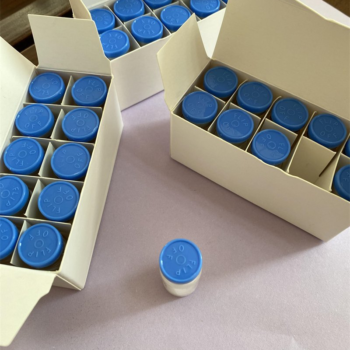
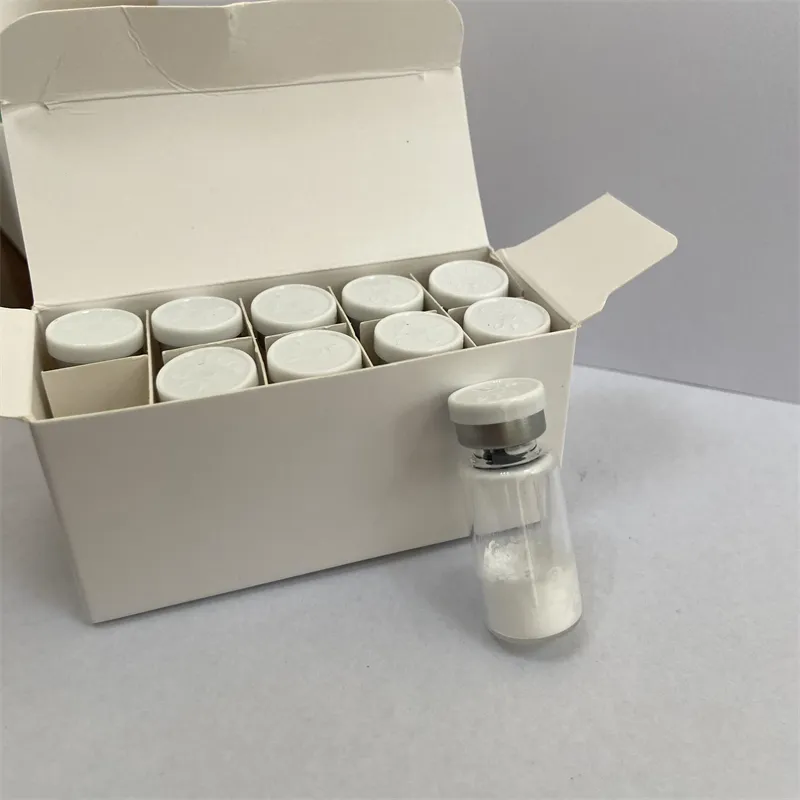
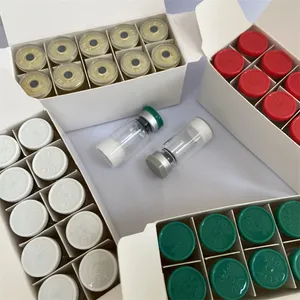
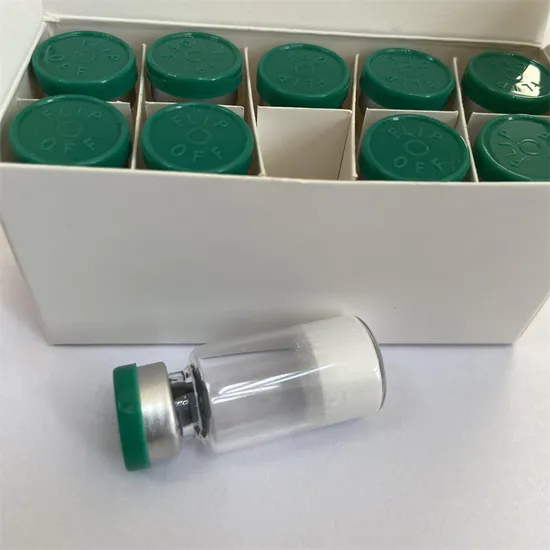
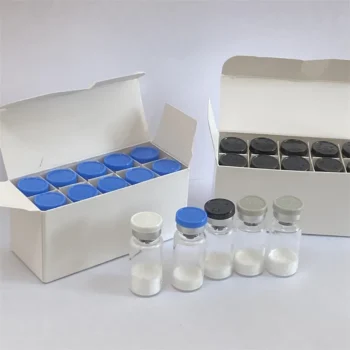
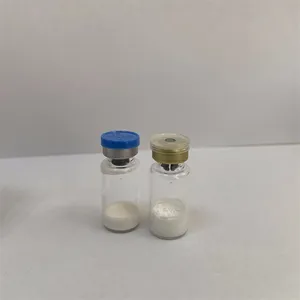
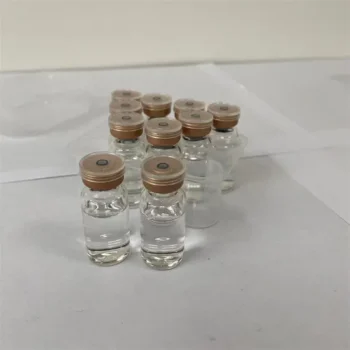
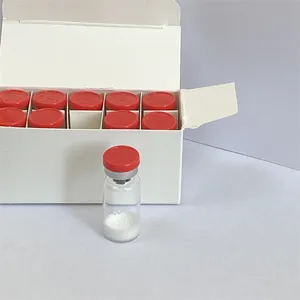
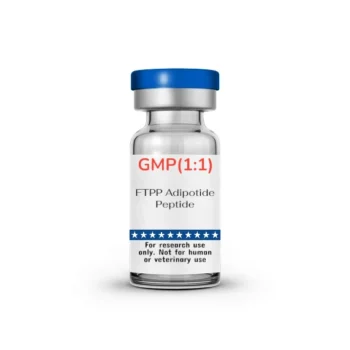
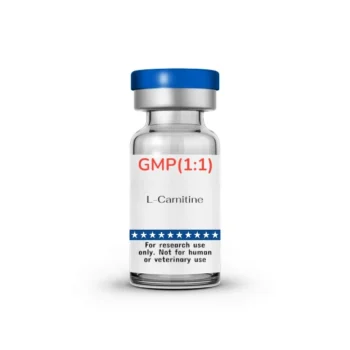
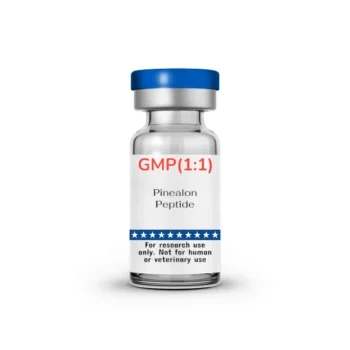
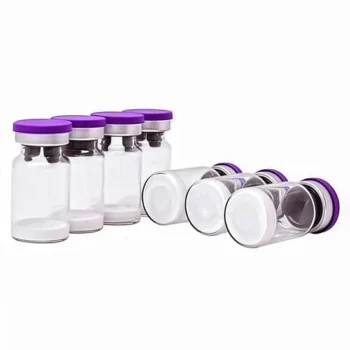
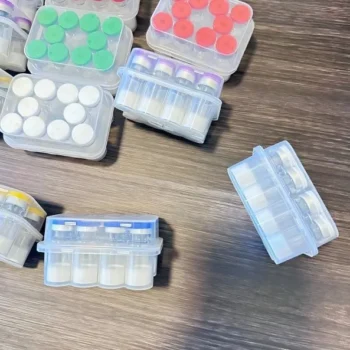
Reviews
There are no reviews yet.